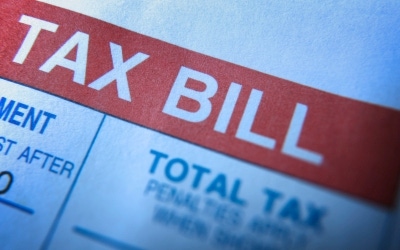The Form 1099 requirement could have two potentially negative impacts on your day-to-day self-storage operation.
November 19, 2010

President Obamas Health Care Bill requires that businesses involved in health care file a 1099 with the IRS for any purchased goods valued at more than $600. As a follow up to the bill, Representative Barney Frank introduced the Small Business Jobs and Credit Act of 2010 (H.R. 5297). Ostensibly the goal of the act is to increase the availability of credit for small businesses, provide tax incentives for small businesses and create jobs.
That all sounds nice, depending on your political affiliation. However, one of the requirements of this act extends the Form 1099 requirement to anyone receiving rental income from a rental-property business. While this is clearly a revenue-raising measure designed to offset other losses from the credits issued by the new act, the thinking is more reported payments will result in more taxes to collect. This change in the law has two potentially negative impacts to your day-to-day self-storage operation.
What You Need to Know
First, youll need to require a 1099 from anyone your business pays in excess of $600 a year not in the form of wages and salaries. Ordering a batch of new locks and boxes in excess of $600 per year? Make sure you receive a form 1099. Same with landscapers, asphalt repair, gate repair, software upgrades, etc.the list goes on and on. This even applies to your trusted lawyer. If youre going to spend more than $600 on anything you may deduct as a business expense, youre going to need a 1099 from the person or company selling products or services to you.
As if the first issue isnt a big enough paperwork nightmare, several state tax commissionerswith more to follow, Im surehave interpreted this change in the law as assistance in making a bigger sales-tax grab. In their interpretation, if you make a sales-taxable purchase and the receipt doesnt indicate sales tax was charged and collected, you the self-storage operator/real estate owner will be liable for payment of that tax to the state. The new Form 1099 requirement makes it easier for the commissioners to follow the money and check sales-tax collections and payments.
For example, lets say you use a company to mow the grass at your facility. If, in your state, thats a sales-taxable event, not only must you get a 1099 from the lawn-care company because youve paid it in excess of $600 per year (which you will use to support your business-expense tax deduction), the invoices the company sends you must show that sales tax was charged.
Some tax commissioners will say that if the invoice for grass-cutting doesnt show sales tax was charged when they crosscheck the 1099 you file with the IRS, they have the right to assume sales tax was not charged, thus not paid, and hold you personally liable. Many vendors have said for years that sales tax is simply included in the price. In many states, by 2012, that will not do; and for safetys sake, you should insist that any bill you pay for a sales-taxable event in your state should clearly delineate the portion of the bill thats sales tax.
Whats a Sales-Taxable Event?
Of course, the problem is knowing what qualifies as a sales-taxable event in your state. Purchasing a product at your local store is easythe register figures it out for you and puts sales tax on the receipt. But what if you order supplies from an out-of-state vendor who feels its not necessary to charge sales tax to out-of-state customers? Suddenly, you become the CPA who has to figure out whether your vendor is right. The larger national vendors know this information, and its safe to say that if you ask once, you can rely on their answer. But what if youre ordering from a smaller, less sophisticated company?
For example, lets say you hired a vendor to install cylinder locks on 500 storage doors. The act of making these changes may be considered a service, and thus a sales-taxable event in your state. The company you hired didnt charge sales tax because its from another state, or sales tax is not indicated on the bill. This is likely because the vendor doesnt want to file 50 sales-tax returns every year.
In some states now, if your taxing authority crosschecks your 1099 with the companys bill and fails to see a sales tax, you could be held liable for it. By the way, if this happens, its a personal liability, not a business liability. Simply closing up the business or filing bankruptcy doesnt necessarily make it go away.
I warn you of this because, although the federal requirements are not necessarily in effect until 2012, you have to begin gathering the 1099s in 2011 to get used to the requirements and make a 2012 filing. This is a good time to check with your accountant and understand the specific requirements in your state and under the federal law.
Also discuss with your tax advisor the sales-tax issue and how your state commissioner may be interpreting the law as it pertains to sales-taxable events. Make sure you have all the necessary paperwork in place before you make your 2011/2012 tax filings.
Jeffrey J. Greenberger is a partner with the law firm of Katz Greenberger & Norton LLP in Cincinnati and is licensed to practice in Kentucky and Ohio. Mr. Greenberger primarily represents the owners and operators of commercial real estate, including self-storage owners and operators. To reach him, call 513.721.5151; visit www.selfstoragelegal.com .
About the Author(s)
You May Also Like





